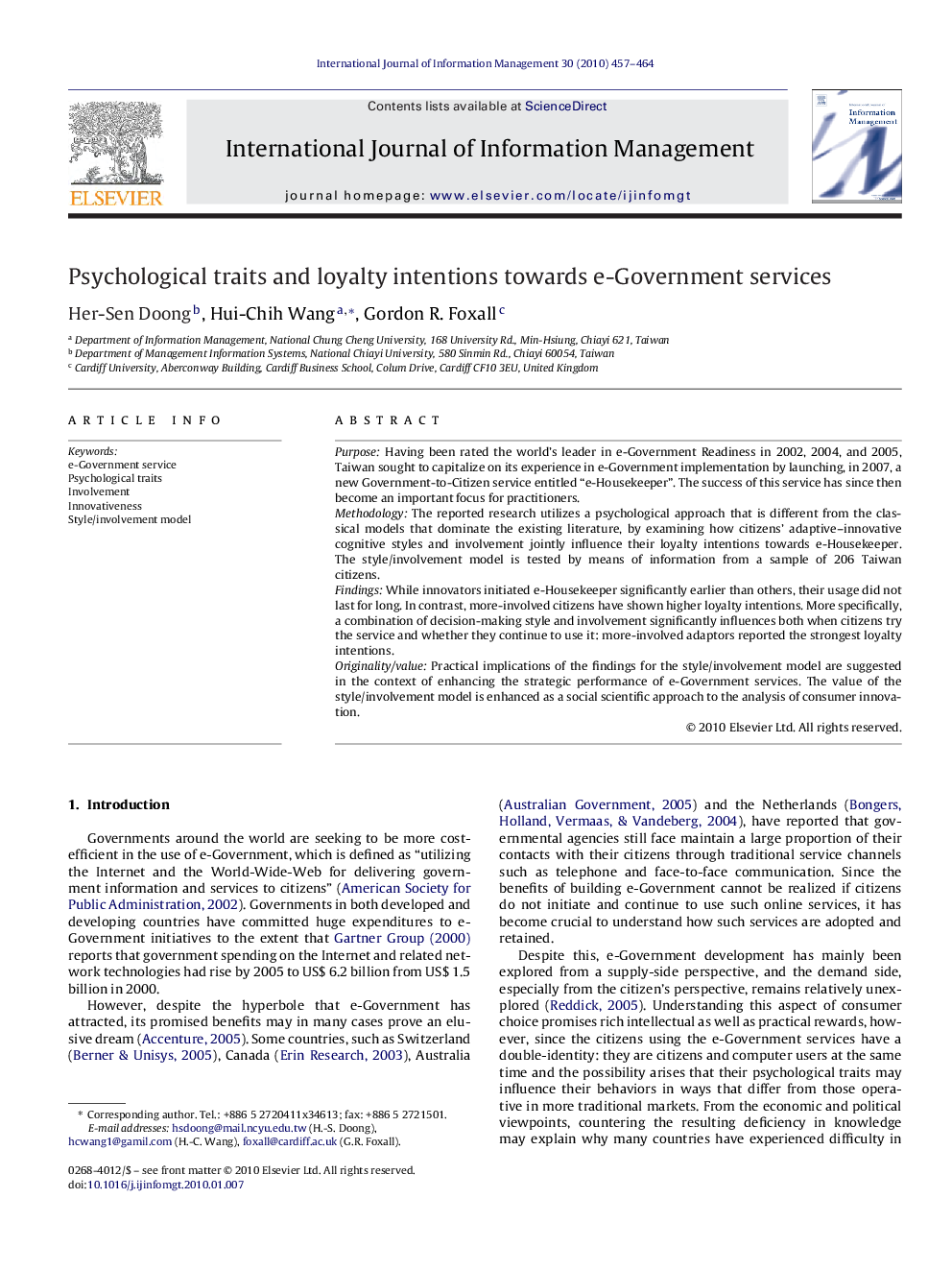| Article ID | Journal | Published Year | Pages | File Type |
|---|---|---|---|---|
| 1026083 | International Journal of Information Management | 2010 | 8 Pages |
PurposeHaving been rated the world's leader in e-Government Readiness in 2002, 2004, and 2005, Taiwan sought to capitalize on its experience in e-Government implementation by launching, in 2007, a new Government-to-Citizen service entitled “e-Housekeeper”. The success of this service has since then become an important focus for practitioners.MethodologyThe reported research utilizes a psychological approach that is different from the classical models that dominate the existing literature, by examining how citizens’ adaptive–innovative cognitive styles and involvement jointly influence their loyalty intentions towards e-Housekeeper. The style/involvement model is tested by means of information from a sample of 206 Taiwan citizens.FindingsWhile innovators initiated e-Housekeeper significantly earlier than others, their usage did not last for long. In contrast, more-involved citizens have shown higher loyalty intentions. More specifically, a combination of decision-making style and involvement significantly influences both when citizens try the service and whether they continue to use it: more-involved adaptors reported the strongest loyalty intentions.Originality/valuePractical implications of the findings for the style/involvement model are suggested in the context of enhancing the strategic performance of e-Government services. The value of the style/involvement model is enhanced as a social scientific approach to the analysis of consumer innovation.
